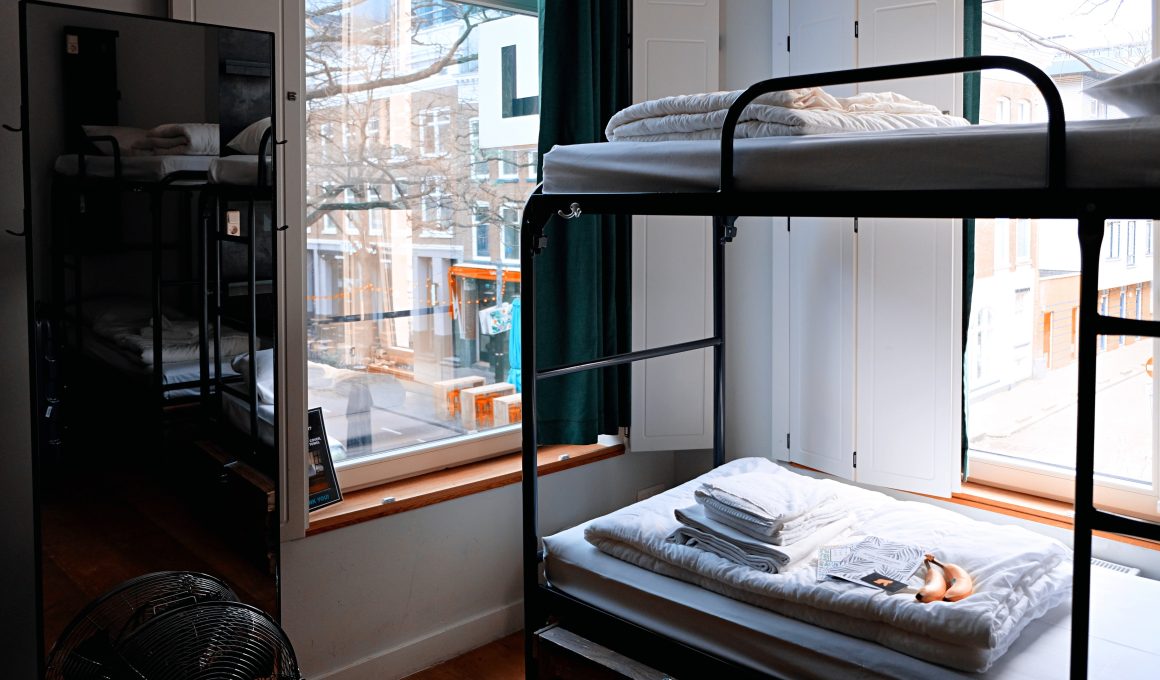On-campus living is fun, and it’s supposed to be. However, that doesn’t change the fact that living away from home opens you up to a whole new world when it comes to personal safety and security. Make sure you and your belongings are well-protected by following these 5 tips for dorm room safety.
1. Prioritize access security
Most dorm residence accommodations are now fitted with access security systems with keyless features that use encrypted fobs, or keycard entry systems using ID badges for authorizing door entry. If your dorm does not feature a system that feels safe and secure, take it up with the administrative team to see if any improvements are in the works.
If you do have traditional keys for your dorm, always make it a habit to lock your dorm door whenever you leave, and always keep your dorm room closed – it only takes a few minutes for an intruder to access you or your belongings.
2. Adhere to any dorm guest policies
Student dorms often issue a series of safety rules for dorm residents to follow, one of which commonly refers to guest policies.
Look into your dormitory’s guest policy and ensure that you follow any rules set out. That said, even if there are no set rules regarding guests, it is never advised to let anyone into your dorm room unless you know them personally and well.
Keep an eye out for anyone else not conforming to the guest policy and alert someone in charge if you feel another resident’s actions could be putting you and your belongings at risk.
Additionally, make sure to not allow others to ‘tailgate’ behind you and into the building – everyone who accesses the premises should do so using their own authorized entry credentials.
3. Familiarize yourself with emergency exits and procedures
Make sure that you are familiar with the emergency exits throughout your building, especially the ones closest to your own dorm.
Dorm fires pose one of the most common risks, so be sure to unplug any hairdryers, straighteners, and any other heat-related devices whenever they aren’t in use.
Additionally, take the time to understand your dorm’s fire escape plans or other emergency drills, and find out where the nearest emergency phone is located.
4. Protect your belongings
As well as your personal safety, it’s important to consider the security of your belongings. Wherever possible, store your most valuable items in a locked drawer or locker, and at the very least, keep them out of sight. This goes for cash, jewelry, electronic devices and anything of sentimental value, too.
Be sure to never leave any valuables out in plain view, especially in proximity to the window or hallway where opportunists could spot them. If you have particularly valuable items, it’s also a good idea not to boast or otherwise draw attention to them.
Create an inventory of your belongings
Having an inventory list of your valuable belongings including information such as makes and serial numbers can make all the difference in the unfortunate event that you are robbed. Police have much more to go on when they have specific descriptions and serial numbers, and this can increase the chances of you having anything returned to you. You can also take pictures to form part of your inventory.
Also consider insuring your valuables
If you have anything of significant value, it’s always a good idea to consider insuring your belongings. Most insurers allow parents to add their children’s belongings to their policy so long as they reside on-campus. Otherwise, off-campus residents will need to set up a separate policy, but it will still be much cheaper than the likely cost of replacing stolen items.
5. Be a good neighbor
There is safety in numbers, as they say, and this is certainly the case when it comes to dorm room safety. By building a great sense of community amongst your neighbors, you can create a network in which everyone looks out for each other, holds each other accountable for any lapses in judgment, and acts as a significant deterrent to potential attackers.
Final thoughts
Starting your life away from home is exciting, but it also calls for you to take much more responsibility for your personal safety, and the security of your belongings. Have fun, but get your priorities straight when it comes to staying safe and working together with your new-found friends to look out for each other.






